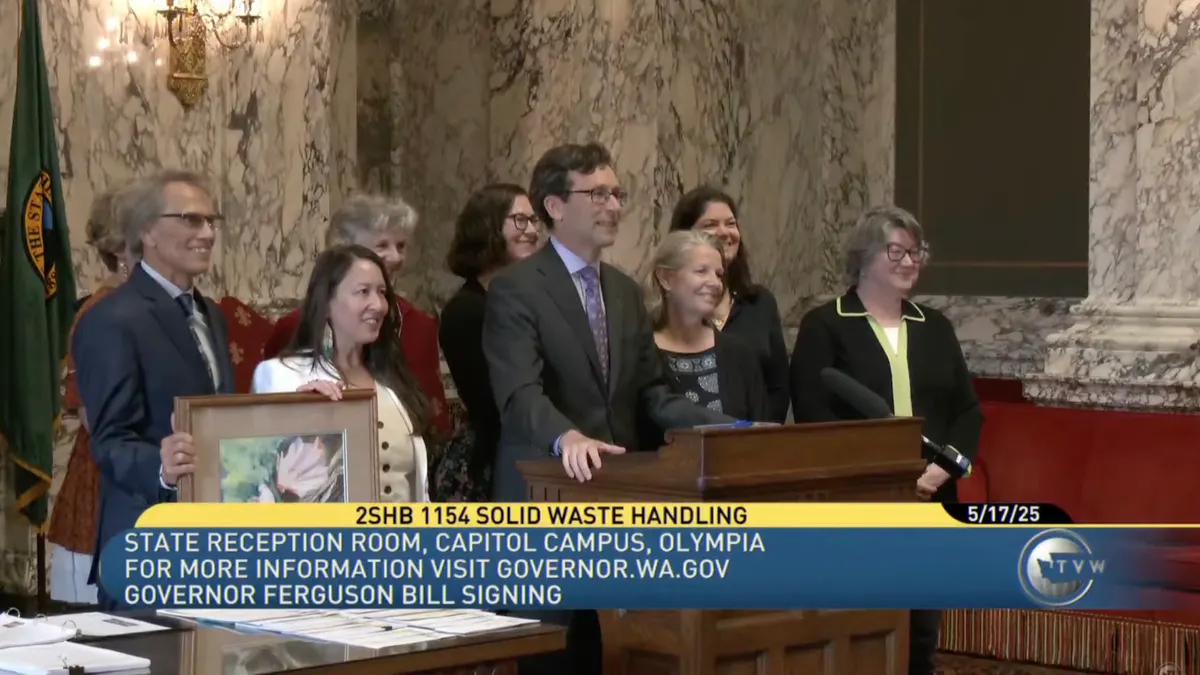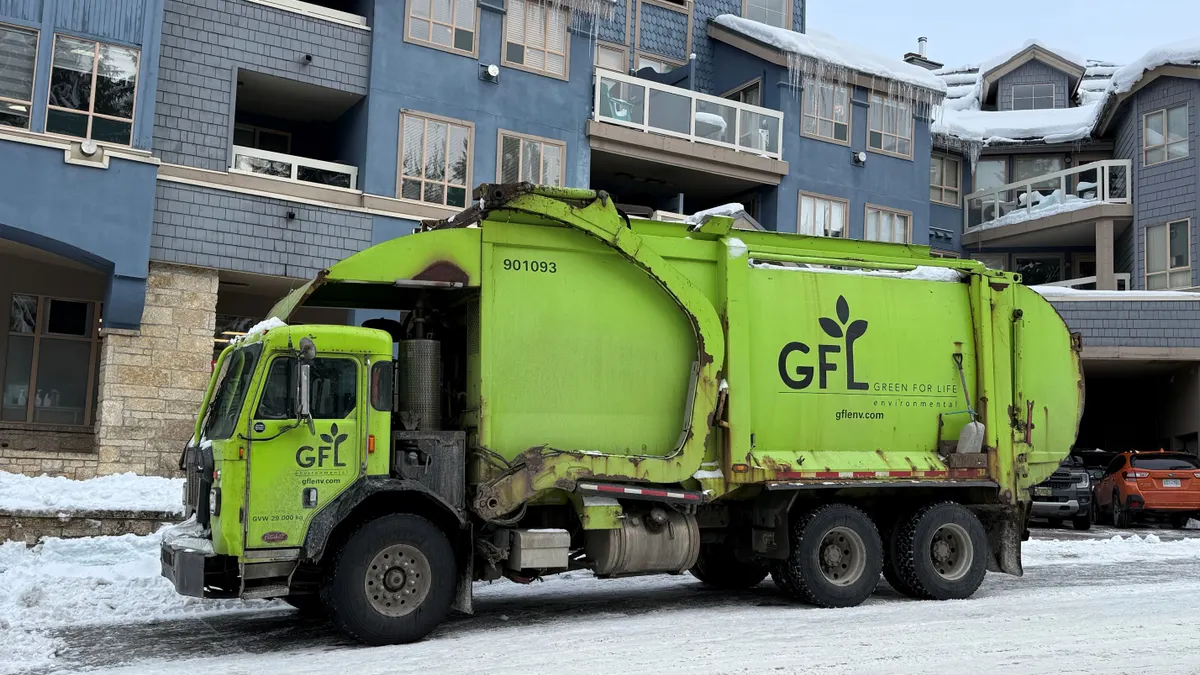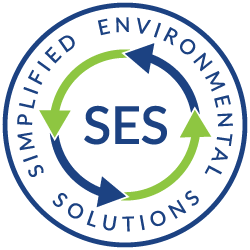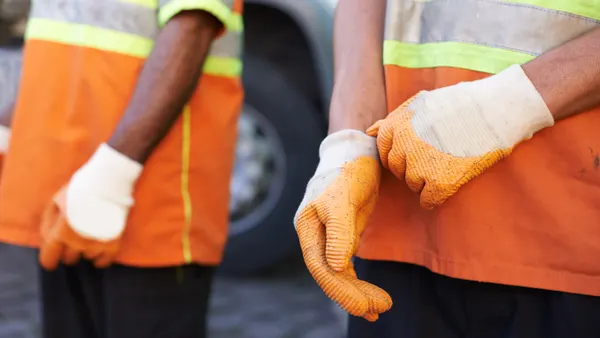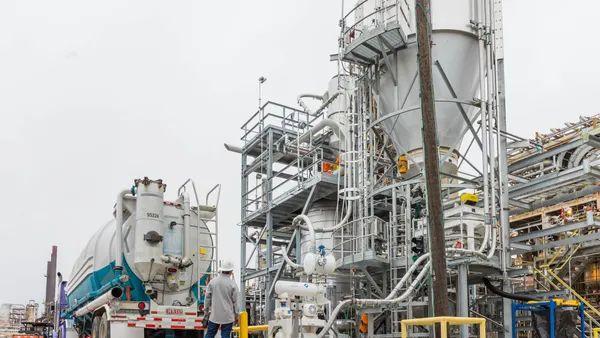Washington Gov. Bob Ferguson signed a host of waste and recycling bills over the weekend.
The headline action was Ferguson’s approval of the Recycling Reform Act, an extended producer responsibility for packaging bill, which he called the “biggest overhaul of our recycling system in decades.” He also signed multiple other bills on May 17 with implications for the industry.
Also, two right-to-repair bills, for consumer electronics and wheelchairs, are expected to be signed on May 19.
HB 1154
This law will add a new level of state approval to landfill permits issued after Aug. 1, 2027, and give local authorities the ability to enforce fines for noncompliance. The state’s Department of Ecology would have the ability to deny or require amendments to such permits, which a local health department could opt to appeal. It also adds different levels of fines for noncompliance, among other changes.
The bill was spurred in part by compliance issues at two landfills in Yakima County, including one owned by Macquarie-backed DTG Recycle. Representatives from one of those sites, the Caton Landfill, testified in opposition to the bill.
HB 1497
This law builds on other organics laws passed in 2022 and 2024, as part of a goal to reduce organic waste disposal by 75% by 2030, based on a 2015 baseline.
HB 1497 makes a range of changes, such as standardizing container requirements and other updates. Notably, it also expands organics collection requirements to certain multifamily residential buildings.
It was supported by the Washington Refuse & Recycling Association, DTG, Divert, Mill Industries, Seattle Public Utilities, the Natural Resources Defense Council, Zero Waste Washington and others.
HB 1409
The law sets a more aggressive timeline than prior regulations on which fuel suppliers must reduce the carbon intensity of the fuels they supply. Suppliers must now reduce the intensity by 45% by 2038, compared with 2017 levels. The law also gives Ecology, which administers the law, the option of increasing that target or interim targets after 2032.
The change is advantageous for the renewable natural gas industry, said Todd Campbell, vice president of public policy and regulatory affairs at Clean Energy Fuels, in an emailed statement. The industry will see more demand for its product due to its low carbon intensity score as a result of the more stringent standard, he said.
The bill is a “significant milestone” in Washington’s renewable fuels transition, Yanni Psareas, state legislative affairs manager for the RNG Coalition, said in an emailed statement
The American Biogas Council and multiple other groups also supported the bill.
SB 5033
This law, part of a broader trend of states focusing on per- and polyfluoroalkyl substances in biosolids, requires Ecology to ramp up a plan for testing to detect PFAS in the sewage material. The agency must develop guidance by July 2028, in consultation with a new advisory committee. It must then review biosolids samples by July 2029 and provide recommendations to the legislature by December 2029.
HB 1293
This law increases penalties for littering and delays the implementation of certain provisions from a 2020 single-use plastic bag law.
The prior law required retail establishments to begin offering “reusable” bags with a thickness of at least 4 millimeters in 2026. This new law shifts that timing to 2028, which Ferguson said "gives the legislature time to further consider our reusable bag policy.” It also requires establishments using these thicker bags to collect a 4-cent fee that will be deposited into a state waste reduction, recycling and litter control account.




